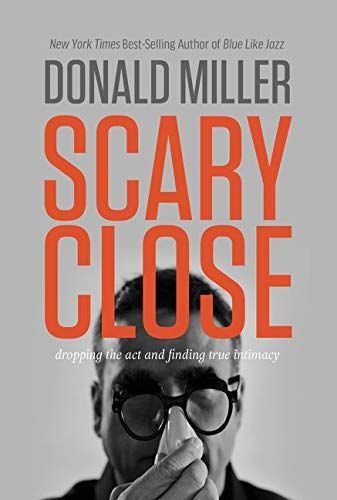
Scary Close Dropping the Act and Finding True Intimacy
After decades of failed relationships and painful drama, Donald Miller decided he’d had enough. Impressing people wasn’t helping him connect with anyone. He’d built a life of public isolation, yet he dreamed of meaningful relationships. So at forty years old he made a scary decision: to be himself no matter what it cost. From the author of Blue Like Jazz comes a book about the risk involved in choosing to impress fewer people and connect with more, about the freedom that comes when we stop acting and start loving. It is a story about knocking down old walls to create a healthy mind, a strong family, and a satisfying career. And it all feels like a conversation with the best kind of friend: smart, funny, true, important. Scary Close is Donald Miller at his best.
Reviews
Claudine@claudrod
Sarah Vaughan@sarahlee1164
Les Reynolds@lreynolds
Grady Scott Weston@gradyweston
Lizzy Jensen@lizzyjensenn
Gabrielle Engleman@gabaroo
John Elbing@palebluedot
Jessie@jraelew
Bailey Sawka@baileysawka
Corey White@mswhiteandherlibrary
Genevieve Poist@proustiancookie
Kevin S Perrine@kevinsperrine
Leanne Harris@leanneharris
Highlights
Claudine@claudrod
Claudine@claudrod
Claudine@claudrod
Claudine@claudrod
Claudine@claudrod
Claudine@claudrod
Claudine@claudrod
Claudine@claudrod
Claudine@claudrod
Claudine@claudrod
Claudine@claudrod
Claudine@claudrod
Claudine@claudrod
Claudine@claudrod
Claudine@claudrod
Claudine@claudrod
Claudine@claudrod
Claudine@claudrod
Claudine@claudrod
Claudine@claudrod
Claudine@claudrod
Claudine@claudrod
Claudine@claudrod
Claudine@claudrod